Features
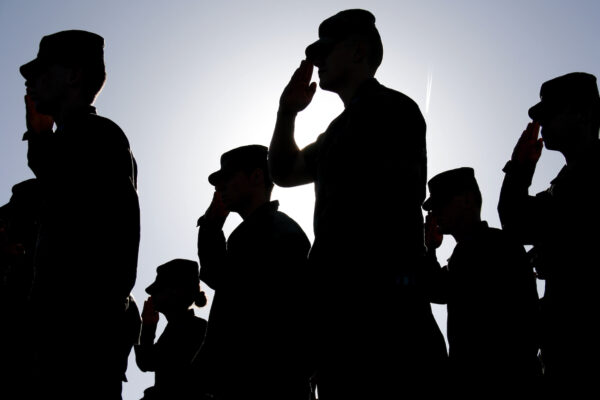
#EducateVeterans on Student Financial Aid
Since the passage of the Post-9/11 GI Bill in 2009, the United States has spent more than $53 billion to educate over 1.4 million military-connected students. However, a large share of veterans and other military-connected students do not receive VA/DoD education benefits or other financial aid to help pay for college. What can be done to ensure they get the support they need and are entitled to?

A Call to (Open) Arms for U.S. Higher Education
Increasingly, global citizenship is a core enterprise for much of U.S. higher education. But recent events in Beirut, Paris, Tel Aviv and Bamako, amid the ongoing flow of Syrian refugees—and the dark fears they have ignited—feel like a major setback to this endeavor. ACE’s Heather Ward asks how higher education should respond.

Where Have All the Low-Income Students Gone?
Since 2008, an intensive national campaign has sought to boost the number of college graduates. But low-income students are now actually much less likely to enroll in college immediately after high school than they were seven years ago, despite all of the efforts to increase their post-secondary participation. ACE’s Terry Hartle and Chris Nellum discuss this surprising and deeply troubling trend.
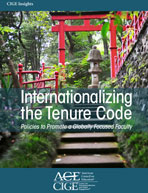
The Other 90 Percent: Global Competence for All
In the increasingly globalized world of the 21st century, colleges and universities are recognizing the need to provide students with the knowledge and skills needed to live and work across borders. The big problem, however, is that in the United States, few students ever have this type of experience. Robin Helms looks at the options to give students international experiences beyond study abroad.
Reimagining Remediation in Tennessee
With implementation of the Tennessee Promise, higher education is looking to Tennessee for lessons learned during its foray into the world of free community college. The Tennessee Board of Regents (TBR) is no less a stranger to scrutiny for its innovative practices in developmental education. Tristan Denley discusses TBR’s pioneering approach to remediation.
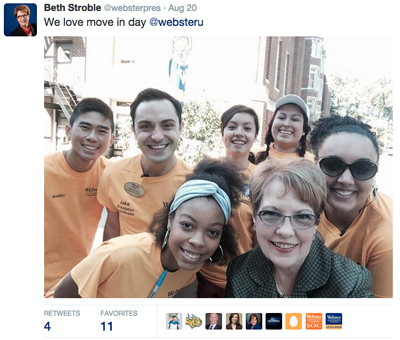
Webster President Beth Stroble on College Leaders Who Tweet
The term “social media” has entered that rare stratosphere of fame and recognition normally reserved for rock stars and presidents. Now, rock stars and presidents bow to the power of social media. Webster President Beth Stroble, an enthusiastic early adopter when it comes to communication technologies, reflects on what this means for higher education.

Talking About Race, Class and College Access
Issues of equitable access and changing demographics weigh heavy on the shoulders of American higher education – and rightly so, write ACE’s Lorelle Espinosa and Matthew Gaertner of Pearson’s Center for College & Career Success. In this post, Espinosa and Gaertner discuss the takeaways from a recent convening on college access and success for minority and low-income students.
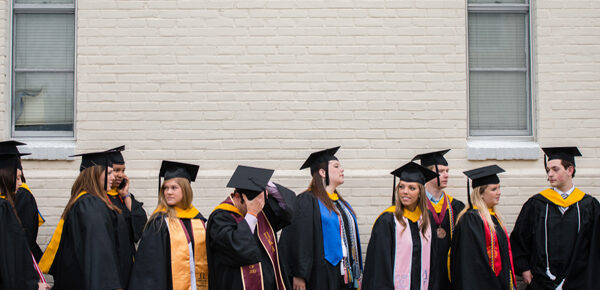
Supporting First-Generation and Low-Income Students at the University of Florida
First launched in 2006, the Machen Florida Opportunity Scholars Program supports nearly 1,250 undergraduates annually and will soon surpass the 2,000 alumni milestone. For the first-generation and low-income students in the program, early estimates indicate that they are 44 percent more likely to graduate in four years and 47 percent more likely to complete in six years compared to their peers.
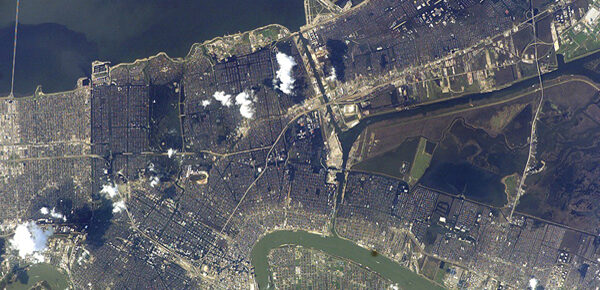
As We Remember Katrina and Recovery, Don’t Neglect Higher Education’s Role
As we reflect on the 10th anniversary of Hurricane Katrina, we will no doubt read and hear stories of rescue and rebuilding and the people who made a difference. When we do, we must also recall the way the higher education community pulled together to save and restore a critical element of the Gulf Coast’s infrastructure—its wide array of colleges and universities.

How to Navigate the Credentialing Maze
The stunning increase in the number and variety of credentials available in this country—college degrees, educational certificates, industry credentials, licensures, and most recently micro-credentials, such as digital badges—seems like a positive thing. However, the complex and fragmented nature of the credentialing marketplace is having the opposite effect—mass confusion.

ISU President Steven Leath: Prioritize Agricultural Research
By 2050, the world population is projected to increase by roughly one third, creating one of the greatest conundrums in history: How to produce as much food in the next 35 years as we have produced in the previous several thousand. Iowa State President Steven Leath writes about his institution’s role in addressing this challenge, and the need to make agricultural research a national priority.
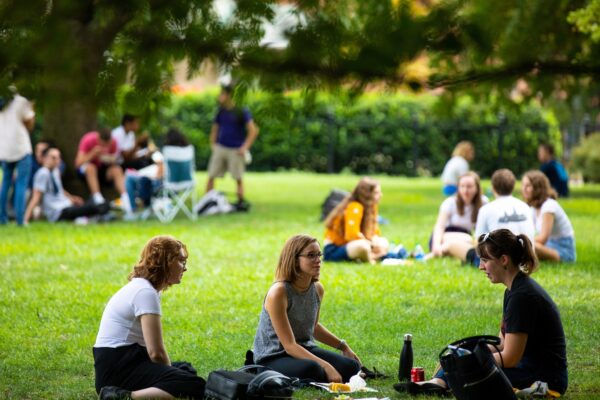
FAFSA Simplification: Harder Than It Seems
Making it easy for students and families to apply for federal student aid is a little like the Holy Grail—universally sought for its extraordinary value, but never found. And the search likely will intensify as Congress works to reauthorize the Higher Education Act, writes Terry Hartle. At issue is the FAFSA, the form that students and families must fill out to get federal student aid.